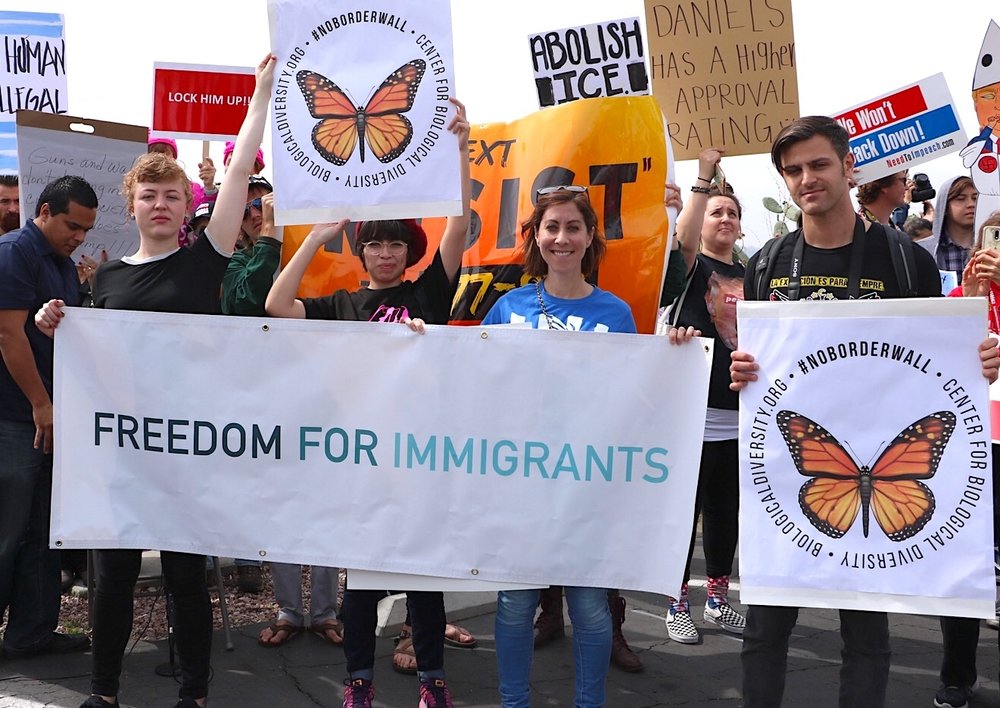- About
- Topics
- Story
- In-Depth
- Picks
- Opinion
- News
- Donate
- Signup for our newsletterOur Editors' Best Picks.Send
Read, Debate: Engage.
| March 21, 2019 | |
|---|---|
| topic: | Refugees and Asylum |
| tags: | #asylum, #European Union, #immigration, #humanitarian visa, #refugees |
| partner: | NewsDeeply |
is considering a proposal to create a European humanitarian visa, a mechanism that will allow eligible asylum seekers safe passage to Europe. The move is intended to provide a much-needed alternative to a risky journey across the Mediterranean Sea, which has claimed the lives of more than 2,000 people in the past year alone.
The European Parliament has asked the European Commission to present legislation by March 31, 2019, and so harmonize the E.U. framework for protected entry. Protected entry is a process under which would-be asylum seekers may apply for a special visa at an embassy or consulate abroad, allowing them to enter that particular state for the purpose of claiming protection.
The European Parliament believes these humanitarian visas will help to reduce the many thousands of deaths each year of people trying to reach Europe on their own. At present, the limited availability of safe pathways to protection means that about 90 percent of refugees in the E.U. arrived by “irregular” means.
The Parliament’s resolution is timely. While protected entry will not resolve the perpetual issue of forced migration, an E.U.-wide humanitarian visa could certainly provide a safer alternative and lessen the immense risks for those in search of protection. Experts have concluded that the proposal may also have important financial and administrative advantages, and uphold the core E.U.values of respect for human rights and human dignity – which is a win-win for both asylum seekers and member states.
The concept of an E.U.-wide humanitarian visa has been under discussion for some time, with a major study of protected entry carried out on behalf of the European Commission back in 2002. Overall, the humanitarian visa is conceived as an attempt to balance the right of children, women and men to flee persecution with the right of member states to control who enters their territory. Legal scholar Violeta Moreno-Lax, who has evaluated options for an E.U.-wide scheme, has noted that discussion of the concept in recent years has encountered “political deadlock” in trialogue negotiations between the European Parliament, Council and Commission over the E.U. Visa Code (rules relating to short-stay visas to the E.U.). It’s not been helped by a 2017 judgment by the Court of Justice of the European Union which held that member states are not required under E.U. law to issue humanitarian visas to asylum seekers. Now, the Parliament has called for separate legislation, noting that the decision to issue such a visa “should remain the sole competence of member states.”
Importantly, the Parliament emphasizes that a humanitarian visa would complement, and never replace, existing procedures for those who seek asylum directly. Instead, as Kaldor Centre director Jane McAdam has noted, mechanisms such as humanitarian visas are best used as part of a “protection toolkit,” operating alongside a range of other pathways – such as third-country resettlement programs or protection-sensitive migration visas – to complement national asylum procedures.
Expanding safe pathways to protection is more important than ever. Currently, a refugee’s chances of being accepted in a third-country resettlement program are extremely limited. Globally, states currently offer around 75,000 places each year, which falls far short of the 1.4 million refugees whom UNHCR has deemed to be in need of resettlement (and the estimated 28 million refugees and asylum seekers worldwide). While some E.U. member states offer resettlement programs or similar pathways, the European Parliament has noted that the number of people admitted through these schemes is low “in comparison to global needs.”
The Parliament’s move is part of a growing international interest in humanitarian visas and safe pathways to protection. In 2013, the Brazilian government established humanitarian visas for Syrian asylum seekers, and Italian faith-based organizations negotiated with the Italian government to set up a protected entry procedure known as “humanitarian corridors.” In Australia, where asylum seekers have been subjected to militarized deterrence measures and offshore processing, the Australian Human Rights Commission has argued that by enabling pre-authorized entry and thus safe travel by plane, a protected entry can offer a “dual benefit”: expanded access to protection “through a managed process.”
Internationally, too, a major 2017 report by the United Nations secretary-general’s special representative on migration urged states to use protected entry procedures to “expand legal pathways for people fleeing countries in crisis,” and emphasized that “our goal must be to offer alternatives” to dangerous routes, a message now reinforced in the 2018 Global Compact on Refugees.
The move to consider an E.U.-wide humanitarian visa is an opportunity for member states to take action on a long-debated concept, and to demonstrate global leadership that will have life-saving consequences for people in need of protection.
This article originally appeared on Refugees Deeply. You can find the original here.
By copying the embed code below, you agree to adhere to our republishing guidelines.
